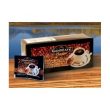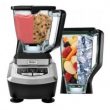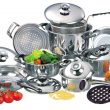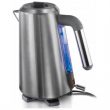It’s no secret that Americans love coffee. In fact, the entire world loves coffee. Next to gas, coffee is the single most traded commodity in the world. Due to its high caffeine concentrations, coffee is the sort of “fuel” for many working people in the world. However, excessive caffeine consumption has been proven to be unhealthy, leading many to desire a way to enjoy caffeine without overdoing it. Some people are also more susceptible to the effects of caffeine. Whatever the reason, decaf coffee is the choice of many for getting their coffee kicks.
How to get decaf
Just how is coffee decaffeinated? There are a few different methods people use. In the past, unsavory methods were used that were not always healthy. Solvents such as benzene and chloroform were used to dissolve caffeine from the unroasted beans. However as time went on it was discovered that all of these substances were carcinogenic. Nowadays different and much safer methods are used. One of the modern methods of decaffeinating coffee is known as the Swiss water process. The Swiss water process involves soaking the coffee beans in water, which absorbs the caffeine but also absorbs a lot of the good flavors of coffee. To counteract this, the beans are soaked with water that has already been soaked in coffee beans, so that the loss of good flavors are minimal.
Another method of extracting caffeine from coffee is via supercritical fluid extraction. In this method carbon dioxide is brought to a super-critical level, meaning it is pressurized and heated until it shares both the properties of a liquid and a solid. Once it is in this state, it is forced through the beans. The fluid brings the caffeine out of the beans. The company later sells the caffeine to soft drink manufacturers.
How does it taste?
There is an obvious question to be asked once you learn how the decaffeination process works. Does it affect the overall taste of the coffee? In short, yes. The coffee bean is a very delicate balance of flavors. As you can see above, in order to extract the caffeine from a coffee bean, you have to go to some pretty drastic methods. The caffeine extraction process can have some pretty drastic to mild effects on the balance of flavors. On top of that, caffeine has a bitter flavor on its own. Removing that flavor from the equation will change the overall flavor of the coffee. The bitter flavor of caffeine interacts with the other flavors of coffee in unique ways. For this reason decaf coffee tends to not be very popular with the coffee connoisseur crowd.
Can science offer a solution? Maybe! In recent years companies have experimented with breeding coffee beans that are naturally caffeine free. Theoretically, you could have beans that taste just as good as the real thing, but no caffeine to speak of. Decaffeination processes would be rendered obsolete and unnecessary. However, this technology is still a long way off, but is feasible for the future.
So what is the best way to get decaf coffee that tastes good? The best way is to not skimp on your beans. Good quality beans will be directly proportional to the taste of the coffee. Some big-chain roasters have gotten a bad rep in recent years for using their old beans for producing decaf beans. Picking your beans from the budget sections are likely to result in coffee that doesn’t taste half as good. More flavorful beans will not lose as much flavor when going through the decaffeination process Look for the premium stuff to get decaf beans that taste just as good as the real thing.










